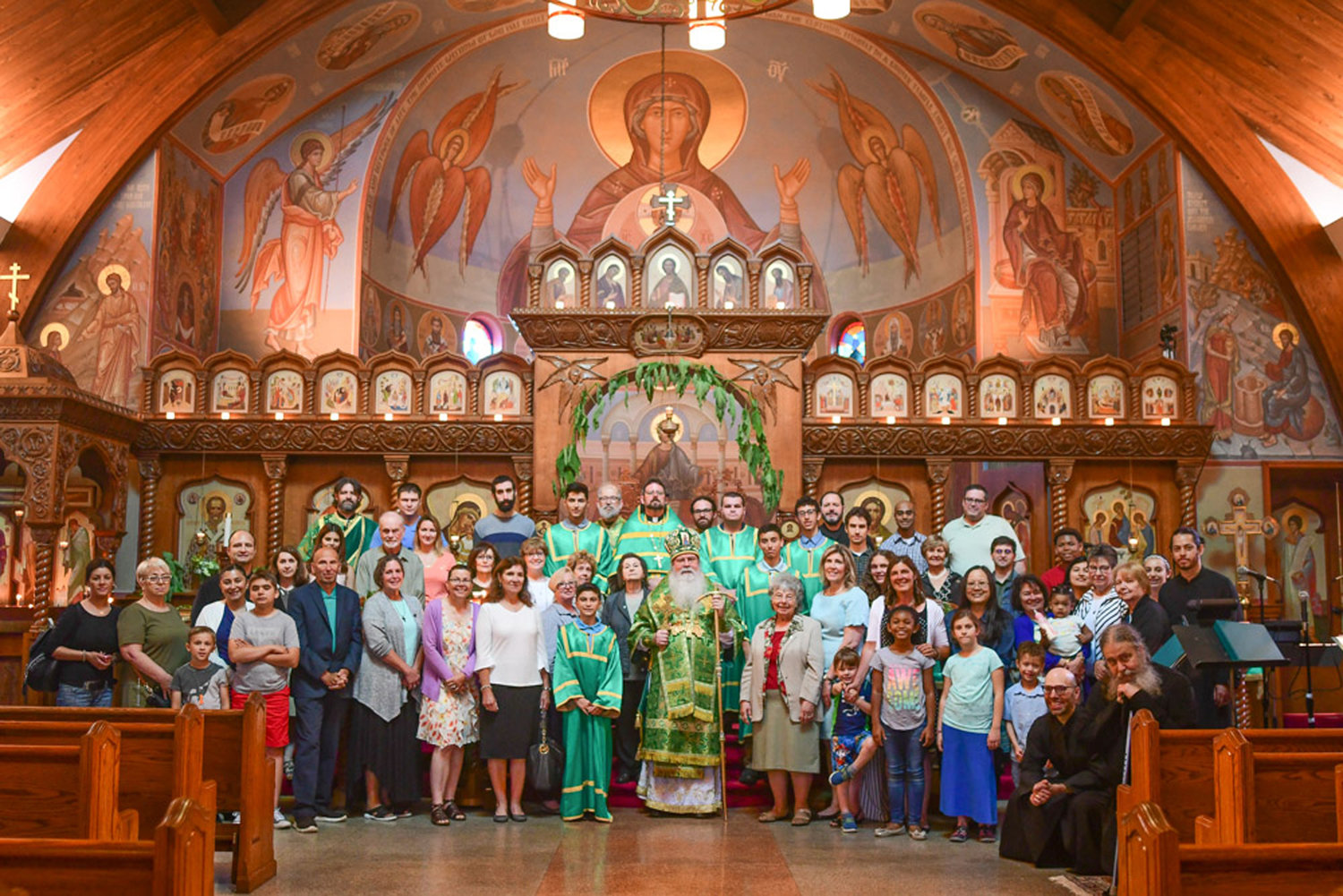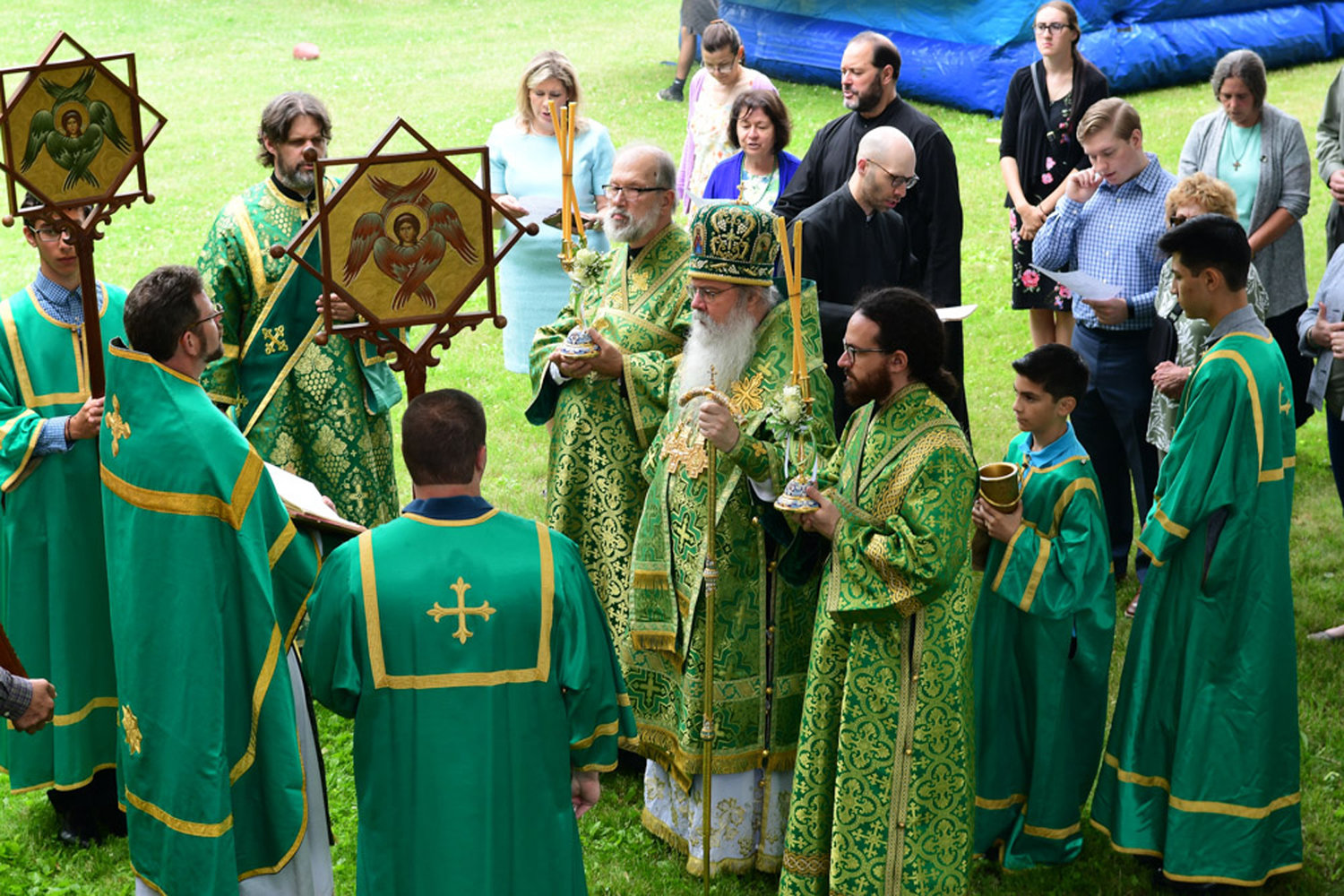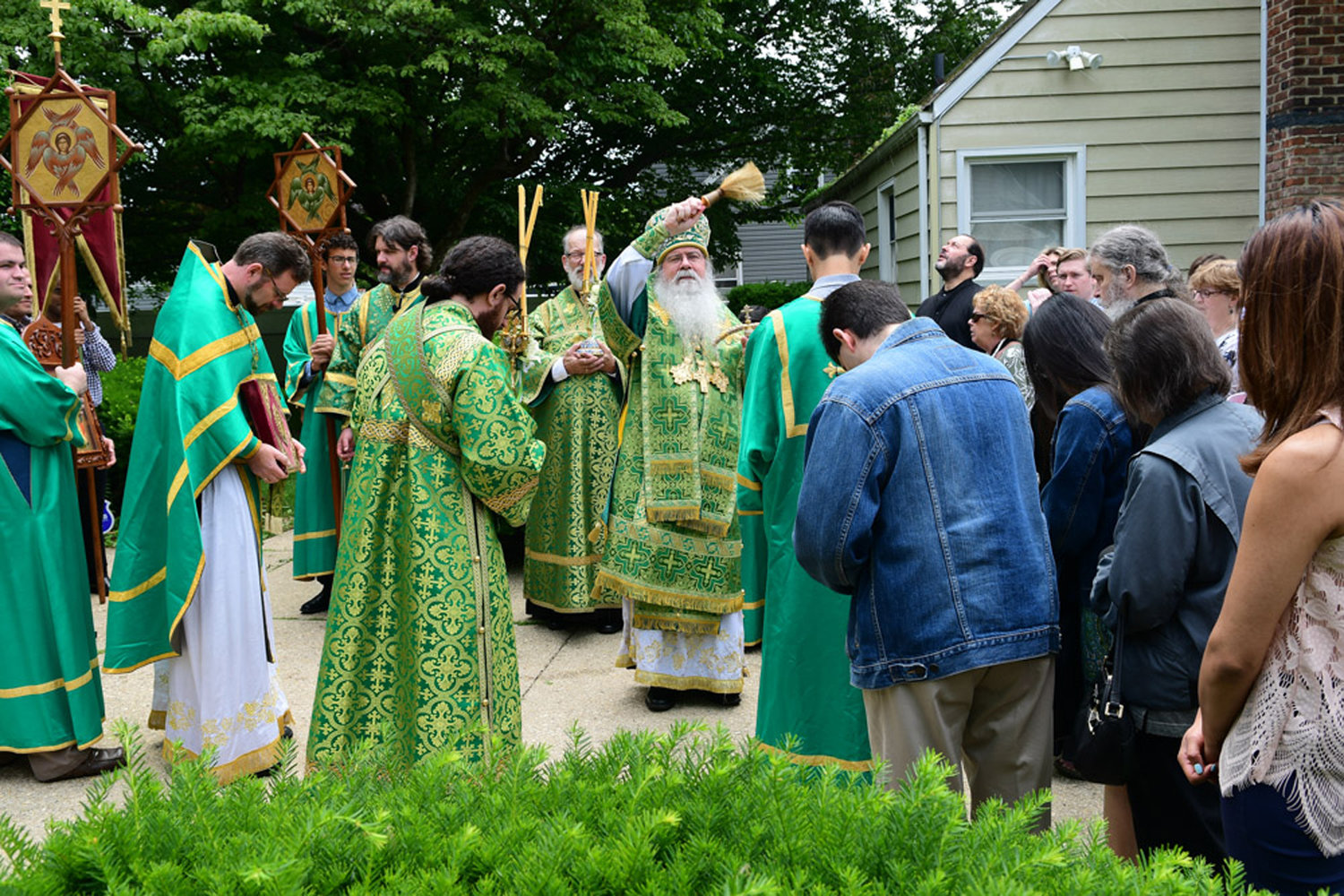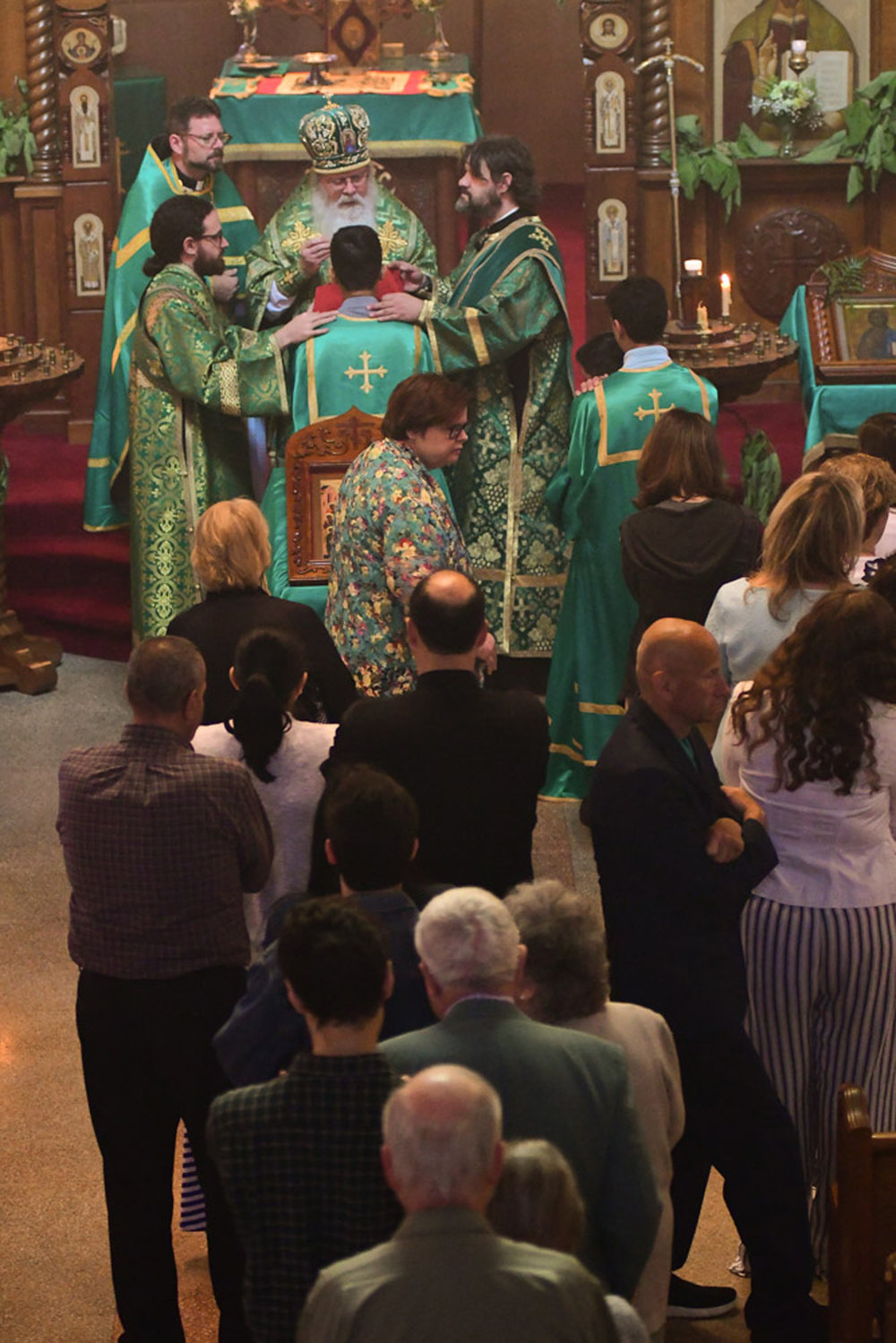Holy Trinity celebrates feast of Pentecost with primate
With deep piety, elaborate pageantry and sumptuous music, Holy Trinity Orthodox Church, in East Meadow, welcomed His Beatitude Metropolitan Tikhon (Mollard), the primate of the Orthodox Church in America, to its celebration of the ancient feast of Pentecost on June 16.
It was the metropolitan’s first visit to the parish since 2017. The community serves the southeastern shore of Nassau County, including Seaford, Wantagh, Levittown, Bellmore and Merrick, with parishioners from as far afield as Queens and Suffolk counties. Metropolitan Tikhon is head of the second-largest Eastern Orthodox church in North America.
Pentecost, the parish’s patronal feast, occurs 50 days after Easter — called Pascha in the Eastern churches. Its origins as a Christian festival are recounted in the New Testament’s Acts of the Apostles. Based on the Old Testament harvest festival of Shavuot, it commemorates the establishment of the Christian church through the coming of the Holy Spirit — the third part of the Holy Trinity.
The parish’s pastor, the Very Rev. Martin Kraus, welcomed the metropolitan, saying it was “a blessing” to have him at the community’s annual celebration. Founded in 1924, Holy Trinity is the oldest Orthodox parish on Long Island.
The presence of the church’s head is a special event for any parish, and this was no exception. “We’re grateful Your Beatitude was able to take the time to be with us for this feast, not only for the hierarchical divine liturgy [on Sunday] but also for the Vigil [on Saturday evening],” Kraus said.
“The church believes that each of the church’s festivals acts as a fulfillment of an event in the Old Testament,” the metropolitan explained. Tikhon also serves as archbishop of Washington, D.C., and was for many years professor of Old Testament studies at his alma mater, St. Tikhon Orthodox Theological Seminary in South Canaan, Pa.
According to the Christian scriptures, as Jesus’s disciples, who were in hiding from Roman and Jewish authorities at the time, gathered to celebrate Shavuot, the Holy Spirit descended on them in flames of fire, enabling them to share Jesus’s teachings in all languages.
Some observers at the time thought the disciples were drunk, according to the account given in Acts, until each of the listeners suddenly realized the words they were hearing were spoken in their respective languages. “Parthians and Medes and Elamites and the dwellers of Mesopotamia … were all amazed,” according to the account.
This year, Eastern Orthodox churches celebrated the feast a week later than Western churches, because of differences in the way the faiths calculate Easter.
Tikhon, who has headed the Orthodox Church of America since his election as primate in 2012, is the second convert to hold the post. Founded by Russian missionaries in Alaska in the late 18th century, the church extends throughout the U.S. and to Canada and Mexico, and is divided into 12 dioceses and archdioceses. It is the spiritual home to roughly 1,000 priests, deacons and monastics and has an estimated 100,000 members, according to the metropolitan.
The OCA was granted independence in 1970, when it separated from the Russian Orthodox Church. Because the Russian church at the time was widely regarded as unduly influenced by the former Soviet Union’s communist government, many Orthodox jurisdictions withheld their recognition of the grant.
Within the OCA itself, the experiment has proved successful, bringing together Bulgarian, Greek and Romanian Christians, whose countries fought two bitter, bloody wars before World War I. With other jurisdictions, however, “We haven’t made as much progress as we would’ve liked” in creating a multi-ethnic church, Tikhon said. “But we still remain true to that vision.”
“The situation is getting better,” he said. “In fact, I am due to go on pilgrimage with the ecumenical patriarch soon. We’re visiting Cappadocia” — a historic Christian region that was the scene of many early martyrdoms, and the home of some of the early church’s most illustrious teachers, including St. Basil the Great and his siblings, St. Gregory of Nyssa, St. Macrina and St. Peter Sebaste. Metropolitan Paisios, of Lerou Kalimnou, on the Greek island of Rhodes, was to join the pilgrimage, as well as the OCA’s chancellor, the Very Rev. Alexander Rentel.
The primate acknowledged that little formal progress has been made toward more widespread recognition [of the OCA], but “the situation has become more relaxed; there’s more acceptance of us.”
Declining church attendance continues to be a concern. “Prayer is essentially an ascetical practice,” the primate said. “And it’s difficult. We need to help each other” to maintain a prayer practice, he said.
While he admitted that the number of distractions, such as the internet and Sunday sports, played a role, “we can’t only confine our church lives to Sunday.”
As for the Orthodox Church’s discussions with other Christian churches, progress continues to be slow. The Orthodox Church has been in discussions with the Roman Catholic, Anglican and Lutheran churches for many decades, but theological questions and issues of church governance continue to dog discussions.

 48.0°,
Overcast
48.0°,
Overcast 












